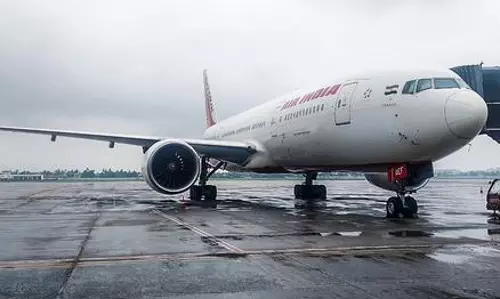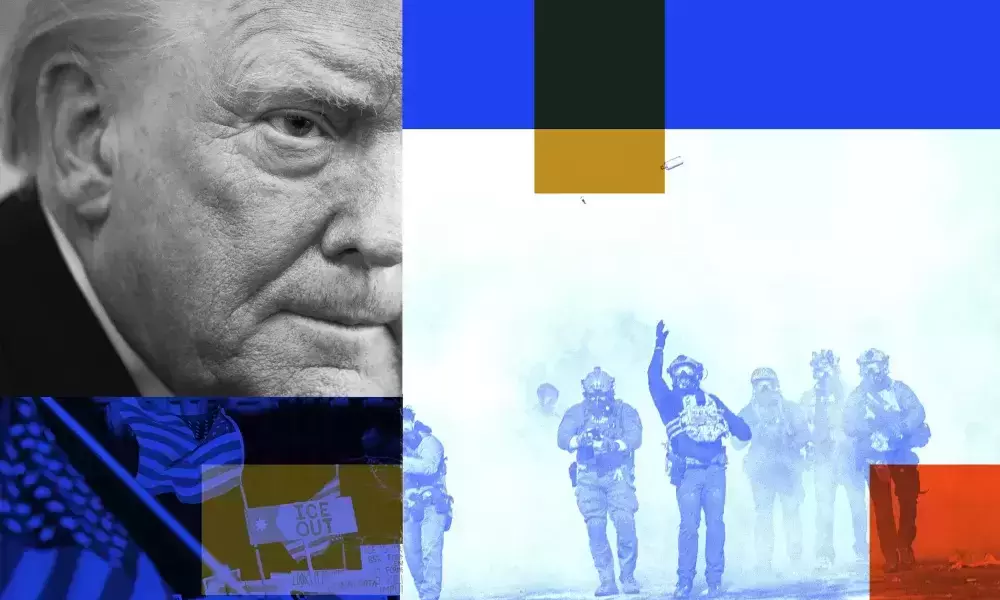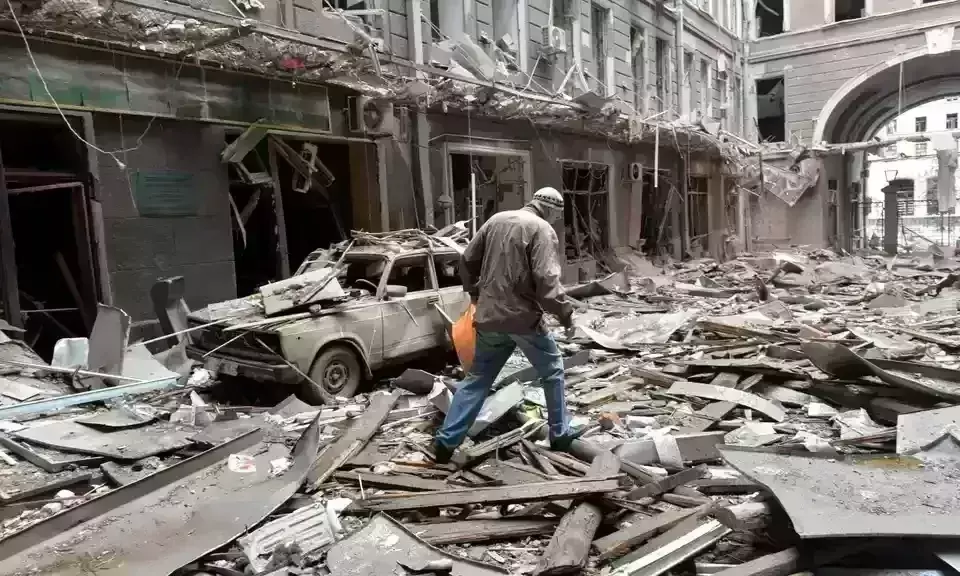
100 days of Russian invasion of Ukraine: a grim picture
text_fieldsKyiv: One hundred days of smoke, fire and blood—there is no letup for suffering in Ukraine. Russian forces laid waste to swathes of Ukraine, bombarding it from all sides, toppling to ground its public institutions, schools, houses—even kindergartens.
Images from the battlefront of smouldering piles of rubble blast our senses every day, adding more pain, people search in them God knows for what.
Corpses lay in the charred buildings, many wounded ones were lying on the streets in wait for the doom. Perhaps you have seen the video clips of civilian corpses in the streets of Bucha and Mariupol, Kramatorsk—each of these places is marked with at least one incident of massive chaos that killed innocent civilians.
Gut-wrenching scenes come from across the divide as well—yes, from the Russian side. Young Russian combatants, as they were pushed to the war by Vladimir Putin, perished in their hundreds or thousands? (Because nobody knows for sure the exact body counts).
On March 25, Russia's Ministry of Defence finally deigned to give a body count. Because, western media was giving dizzying numbers of Russian casualty, which made the authorities to sparingly put deaths in combat to 1,351 alongside 3,825 injury cases.
Anybody who goes by the slowness of Russian progress in Ukraine could put the body count to several thousands.
Ever since Russian tanks rolled into Kyiv and fighter craft rained fire on its cities on February 24, Mariupol alone reported over 21,000 civilian dead, and Sievierodonetsk in the eastern region of Luhansk where Russia is intensely focused, reported 1,500 casualties, according to news agency AP.
President Zelenskyy reportedly said at least 60 to 100 Ukrainian soldiers are dying every day, while 500 are getting wounded too.
Despite allowing for exaggeration, Zelensky's claim of more than 30, 000 deaths of Russian combatants seems lower than the actual numbers. According to him, the toll exceeds more than Soviet Union's loss in Afghanistan in the 10 years' war.
A more tenable estimate by the British government put the total Russian deaths in Ukraine at 15, 000.
The terrible fall-out of all that happened in the war, alongside death, is mass exodus from Ukraine. An estimated 7.1 million refugees knocked at the doors of neighbouring countries and still more, an estimated 8 million people have been displaced within the country.
The grievous side of the war is Ukraine has fewer usable public buildings standing amid rubbles.
Ukraine's parliamentary commission on human rights reportedly said almost 38,000 residential buildings have been destroyed, rendering about 220,000 people homeless or what the American say—"hobos".
Even in the thick of the war, reports emerged about Russia's attack on educational institutions—without even sparing kindergartens. It was widely blamed, nevertheless Russia went on targeting schools, destroying nearly 1,900 facilities. Of them, 180 buildings are just a mass of rubble, according to AP.
A nation where students from poor Asian countries went to study medicine will struggle to teach their children in future. The report further details losses including 300 cars, 50 rail bridges which might cripple rail transport for long. Aside from this, WHO recorded 296 attacks on hospitals, ambulance and medical workers in Ukraine.
As the beast of the war rages killing and mauling, bringing a nation to its knees, the rest of the world cannot be in peace and stability.
The world being a village now with more networks of relations than ever existed in our history, the impact of wars could travel beyond boundaries. On economic front, Russian invasion of Ukraine crippled supply chains—especially of oil and wheat from both the neighbours.
Many nations in Europe and Asia are dependent on their oil and wheat, it will be long before they could wean themselves from this dependency. Of course, the sanctions on Moscow are doing its worst on Russia too.
Two fallouts on economic front is grievously notable: developing nations in Asia and Africa are getting pushed to poverty as they have no access to Russian wheat. Second: rising oil prices in developing countries are pushing product prices amid peaking inflation.
Crude oil prices in London and New York have risen by 20 to 25 percent, resulting in higher prices at the pump and for an array of petroleum-based products, AP reported.
On the international front, the war is highly educative, for nations tend to involve in military action rather than solving issues through diplomacy. In modern times, nothing is more difficult than winning a war - even if a strongman is fighting a weak one.
Considering Russia's firepower and technology, Ukraine is a midget with a rag-tag military. But a hundred days into the war, Russia is nowhere near the end. By entering the war, Russia was actually playing a Russian roulette - yes, a dangerous game. It has begun to dawn on many Russians that Ukraine will not cow down to Russian might. Even Vladmir Putin himself, obviously aware of this truth if reports regarding his outbursts at Russian generals for failing to turn Ukraine into an easy walkover, were true.
With Russian struggling in Ukraine, the kind of twilight glow of supremacy that Russia enjoyed after the fall of the USSR seems to be ebbing away. Until it tested its muscle power, the western world and Russia's allies looked up to Russia as a power to be reckoned with. Now that it is a spent force, Russia will have to work harder than ever to regain that old flimsy glory—which is lost.
Once there was a heavy-muscled goon sitting in a shack by a river with a knife on the table, and he never left the shack. People came over to the shore and paid him levy as they passed. The drama went on until a day a boy discovered that the man had no legs, the truth which he hides beneath the table. Did you find any connection with the Russian situation here?























